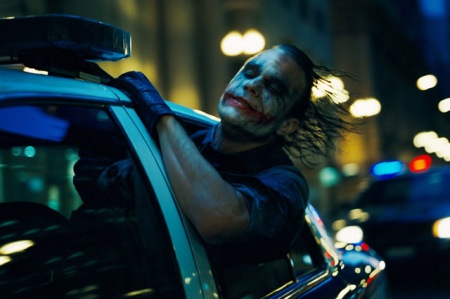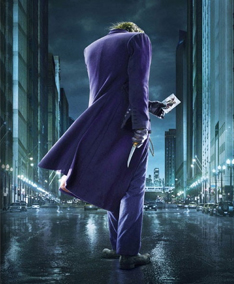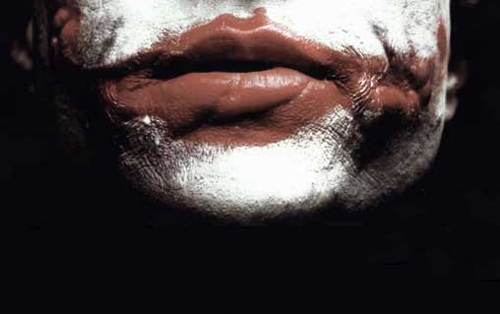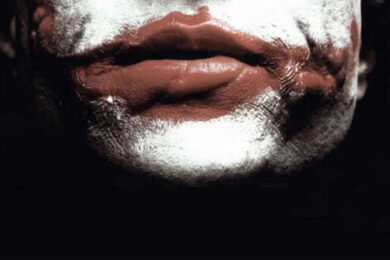Everyone’s getting quite carried away by the new Batman movie, The Dark Knight. Audiences are attending in record-breaking numbers and reviewers are hailing it as a cross between The Godfather, Fight Club and the second coming of Christ. One could not be happier for Christopher Nolan, one of the most likeable and articulate directors in Hollywood, and a dual-nationality American-Brit who had to leave London to make films as the UK film industry thought he was nothing special. To put this in perspective, the UK film industry recently came up with Donkey Punch, indisputably the worst film of all time.
In truth The Dark Knight is very good for a blockbuster, inventive and never boring, but short on emotion and hardly the Guernica it’s being hyped up as. What seems to have tipped reactions over the edge from merited praise to frothing hysteria is the performance of the late Heath Ledger as The Joker. Clowns are always scary, and before anyone had seen the film, rumour-mongers were chucking Oscars at the Australian actor’s ghost, talking his role up as an unholy fusion of Sid Vicious and Alex from A Clockwork Orange. In death, Ledger is suddenly the coolest movie star in the world.
Heath died in New York on January 22nd of this year, a coroner’s report announcing an “accidental overdose of prescription drugs”. He was twenty eight. He was the son of a very wealthy Perth family, the kind of family who name their child after Wuthering Heights’ Heathcliffe. His twin interests as a boy were sport and acting. He chose to pursue the latter, finding jobs in soaps and suchlike before moving to the US and beginning his rise to stardom as a handsome jock in Ten Things I Hate About You. After being pitched as a pin-up boy in A Knight’s Tale -”He Will Rock You” claimed the posters – he began to turn down obvious roles, taking risks in tougher movies like Monster’s Ball. It was Ang Lee’s Brokeback Mountain, where he played conflicted gay cowboy Ennis Del Mar, which proved he had real and very subtle acting chops. Candy and I’m Not There were further successes.

When Nolan was asked why he chose Ledger to tackle The Joker, he said, “Because he’s fearless.” Ledger spoke of the role: “The Joker is the most fun I’ve ever had. He’s just out of control, with no empathy. He’s a sociopath, a psychotic, mass-murdering clown.” Preparing himself, Ledger lived alone in a hotel room for a month, perfecting his mannerisms and idiosyncrasies. He experienced acute insomnia, which is said to have contributed to his exhaustion and troubled state of mind at the time of his death.
With his macabre laugh and smeared make-up, The Joker is that most useful of plot devices, an amoral agent of chaos. “You know the other thing about chaos?” he offers. “It’s fair.” He gets some other smart lines, like “I believe whatever doesn’t kill you simply makes you…stranger.” And, to Batman, “You see, you’re just a freak…like me.”
It’s probable that, given the timing, The Joker – rather than his shrewd, internalised performance in Brokeback Mountain – will be the role for which posterity remembers Ledger. While it’s a sharp, canny, turn, staying just the right side of camp, it’s still, to state a fact, comic book stuff. Never in a million years would someone be touted for an Oscar for a crash-bang-wallop superhero movie, were they not recently deceased. A studio insider unwittingly hinted at as much when discussing the film shortly after Heath’s death, telling Variety that, “The Joker character is dealing with chaos and death and life and a lot of dark themes. Now everyone is going to interpret every line out of his mouth in a different way….”

So let’s not read The Dark Knight as a kind of extended suicide note from a young actor, any more than if, say, Johnny Depp had been hit by a bus after finishing Sweeney Todd, we’d read his depiction of a murderous Cockney barber as revealing his true innermost soul. Heath is acting here, in a big loud film that’s bigger and louder than any one of its big loud characters, and doing it well. But he’s not trying to tell us something between the lines and nods and winks. He’s doing his job. His own long dark nights of the soul make an intriguing story, not least because many of them must have taken place in London, where he spent the weeks leading up to his death living in Islington and shooting a Terry Gilliam film in Blackfriars. But The Joker is not his coded suicide note, and neither is it the greatest acting performance in cinematic history.
Mythology is intensely seductive, especially when it’s glamorous and tragic. In an era though where the maxim “print the legend, not the facts” is taken as gospel, the most fitting mark of respect for Ledger would be to acknowledge a modicum of truth, something he aspired to in his work. It’s a fine performance, if too broad to be his best. It’s a good movie, too intentionally unrealistic to be The Truth.
For a different take on the film see Dan Curley’s review of The Dark Knight
<a href="http://www.thrashhits.com/2008/07/film-the-dark-knight-reviewed/
" target="out"> Click here for the review on Thrash Hits



